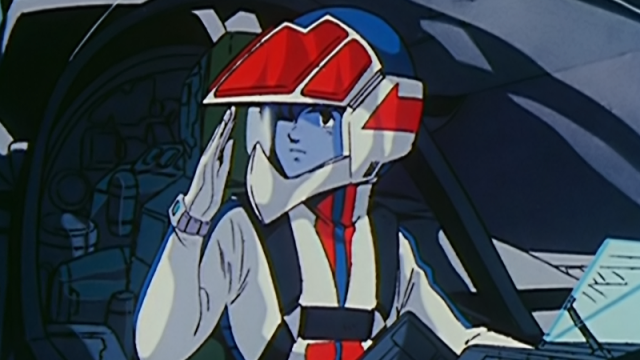In the ‘80s, turning beloved Japanese series into Westernized juggernauts was nothing new — but Macross’ transformation into Robotech sparked a legal feud that has, for the best part of two decades, meant getting the source material in the West legally very hard. That might finally be about to change, but not immediately.
Last night, Bigwest and Studio Nue (the advertising conglomerate and animation studio, alongside Tatsunoko, that created the original Superdimension Fortress Macross) announced that negotiations with Harmony Gold (the American production company that licensed Macross back in the 1980s) had been completed to “chart a new path that will unlock the great potential of both the Macross and Robotech franchises worldwide.” It brings to an end decades of furious legal disputes between the two camps over the iconic franchise, which chronicles the war between Earth’s U.N. Spacy and its transforming-plane fighter pilots, and a giant alien race called the Zentradi.
While Harmony Gold licensed Superdimension Fortress Macross and its merchandise in the ‘80s — to adapt and edit its footage into what would become Robotech — Macross continued as a franchise beyond that original series. For several years, movies and follow-up series were distributed by international partners. But at the turn of the 21st century, Harmony Gold aggressively ramped up legal confrontations with international distributors of Japanese Macross merchandise, taking the stance that its original deal for Macross to make Robotech also covered the vast franchise Macross had become at that point — not just the continuation of the series beyond Superdimension Fortress Macross, but also rights to the Japanese toys.
Harmony Gold began filing trademarks for the Macross brand in the West, and official releases of original Macross material quickly dried up as legal battles between Harmony, Tatsunoko — which Harmony Gold purchased the Macross rights from in the first place, but did not own the entirety of the franchise — and Macross’ various owners ensued. In the early 2000s, Japanese courts clarified that Tatsunoko owned the original footage from Superdimension Fortress Macross, the one entry in the franchise the studio had actually helped animate, and was in its rights to sell the series for international distribution. Harmony Gold essentially ignored the decision, citing that the Japanese legal battle had no ramifications on Macross, and therefore Robotech’s, presence in the West.
Versions of the original Macross have been released in fits and starts in the decade and a half since. A new English dub of the series, released by ADV in 2006, was eventually brought to streaming by Hulu in the U.S. but is no longer available, while in 2014 Lionsgate released the ADV Macross dub, alongside the first 18 episodes of Robotech, on DVD as Robotech: The Classic Collection. Funimation gained the rights to stream Robotech in 2019, but not Macross, leaving those DVD collections one of the rare legal ways to access an unedited version of the original series in the West. However, soon that won’t be the case.
Last night’s shocking announcement between Bigwest and Harmony Gold means that, for the first time in years, the sprawling legal complexities behind Macross and Robotech have, for the most part, been resolved. “The agreement also recognises Harmony Gold’s longstanding exclusive licence with Tatsunoko for the use of the 41 Macross characters and mecha in the Robotech television series and related merchandise throughout the world excluding Japan,” the statement reads in part. “Moving forward, both parties will cooperate on distribution regarding future Macross and Robotech projects for the benefit of both franchises.”
In the long term, this means that both Robotech and Macross will be able to co-exist outside of Japan, as franchise material beyond Superdimension Fortress Macross, whether in the form of series themselves or merchandise for the franchise, officially makes its way to international audiences. In Japan, it also means that Bigwest and Studio Nue won’t contest the legal statues of the long-in-limbo Robotech live-action movie. In the short term? Interestingly, the statement explicitly notes that the deal “immediately permits worldwide distribution of most of the Macross films and television sequels,” meaning that Macross and its myriad continuations can start being negotiatied for new physical releases or streaming deals.
But nothing’s actually happened yet, despite that “immediate” access. The statement notes that the deal between Harmony Gold, Nue, and Bigwest was signed at the beginning of March, but is now only just being made public. Time will tell just how soon we’ll actually start to feel its effects — but at least it means now that after decades of legal confusion, Macross and Robotech might begin to go through a well-deserved revival in Western circles.
